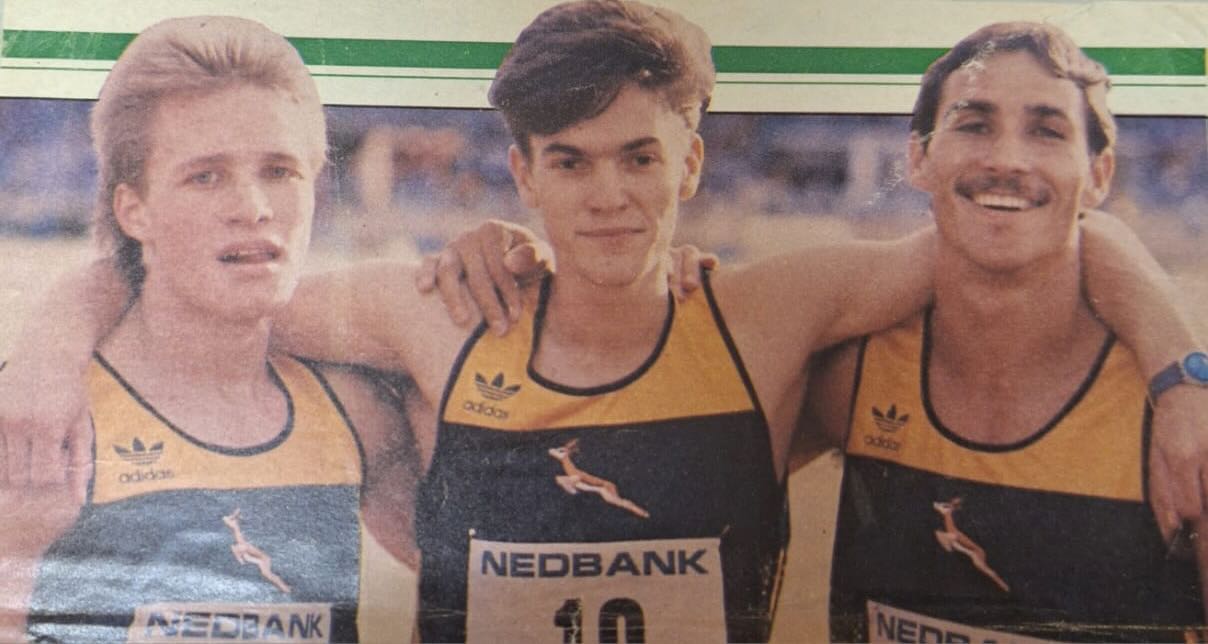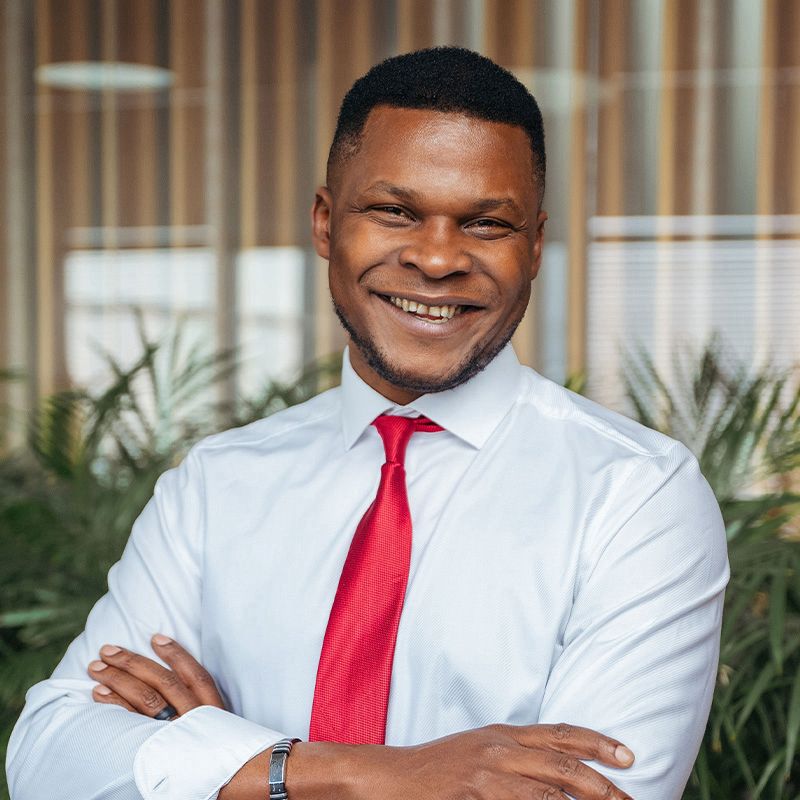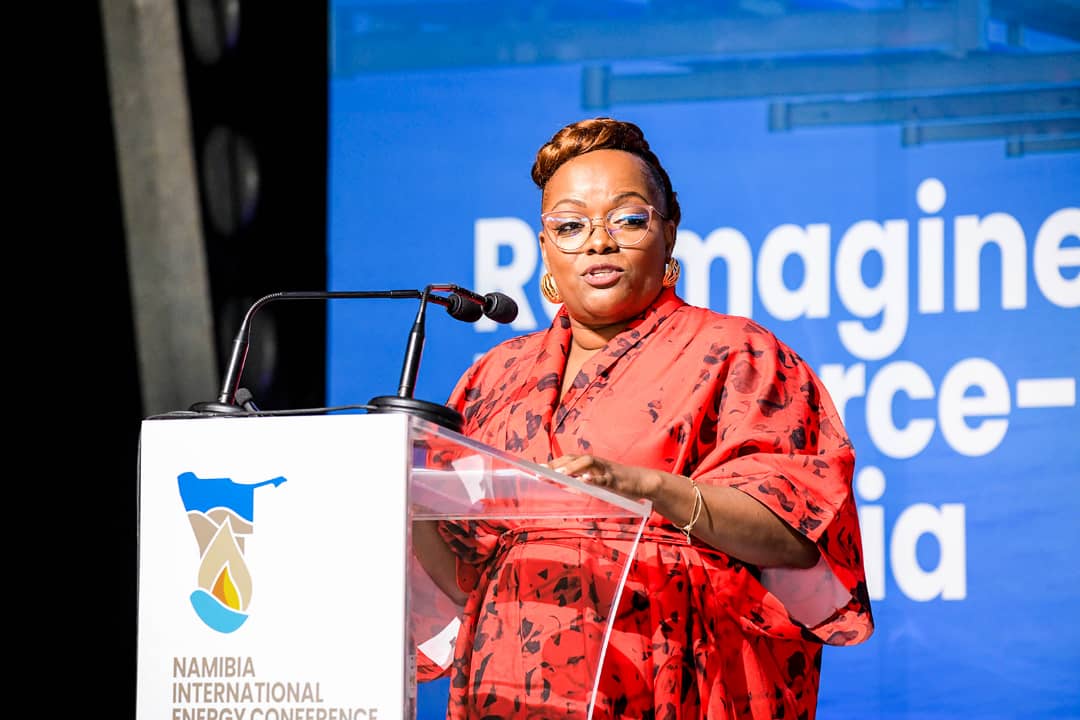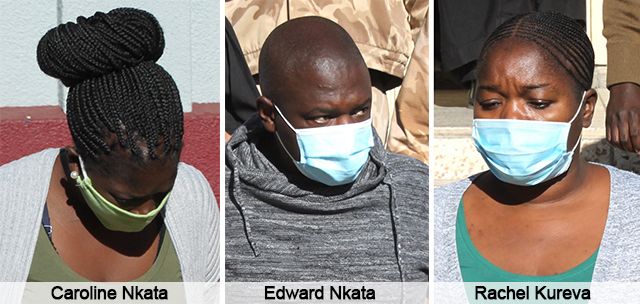Retired sprinter Gerhard Barnard, who made his name before independence, was born with running and athletics in his DNA.
Born in Cape Town, South Africa, in 1967, the speedster moved with his family to then South West Africa as a six-month-old baby after his dad was appointed as the territory’s first attorney general.
The former junior 100m and 200m record holder was only seven years old when he, as a Sub A pupil at Pionierspark Primary School, started setting and equalling records.
“I was born a runner. I already proved myself from my first year at primary school that I was destined for greatness on the athletics track. I was a dominant runner in the junior category and got selected for the South-Western districts team,” Barnard notes.
“Before independence, South West Africa was treated as a de facto fifth province by South Africa. As a result, South West Africa used to compete against the four provinces of South Africa in athletics and any other sport at national level.”
Barnard set a new Western Province record during an inter-provincial event between the South-Western districts and Western Province. He also equalled an existing record in the under-9 age group.
The eight-year-old runner received gold medals in the 60m and 80m sprints.
Barnard continued his running prowess at Windhoek High School (WHS) where he, under the watchful eye of coach Ans Botha, added the 400m dash, which is regarded as the hardest track and field event, to his portfolio.

Botha, or ‘Tannie Ans’ as she is known in athletics circles, coached South African superstar Wayde van Niekerk to smash the 17-year-old 400m world record during the 2016 Rio Olympic Games.
Barnard’s running career went into overdrive during his time at WHS as he continued to dominate the 100m, 200m and 400m.
“During my secondary school days, I won two gold medals – one in the 200m and another in the 400m – at the South African Junior Athletics Championships for boys under-17 in 1984. I set a Namibian and North Transvaal junior 400m record of 46.60,” he notes.
“I also clinched gold in the 200m, 400m and added a silver medal in the under-19 age group at the South African Junior Championships in 1985. I beat Frank Fredericks in the 200m but went on to lose the 100m to him.”
He boasts a personal best of 10.31 in the 100m which he clocked on 17 March 1989, and on 29 April 1989 he catapulted to a personal best of 20.58 in the 200m – both times set during his time at the University of the Free State.
Barnard obtained his Junior Springbok colours in 1988 after winning gold in the 100m and 200m at the South African Under-21 Championships and another gold in the 100m as a member of the South African University team.
His Senior Springbok status was obtained after he won gold in 100m and silver in the 200m at the South African Senior Athletics Championships. He was also a member of the South African team that broke the 4x100m relay record.
Barnard was named male athlete of the championships.
The speedster not only shines on the track; he was also part of his school’s under-10, under-11 and under-12 rugby teams.
Upon his return from his studies in South Africa in 1993, he turned out for the TransNamib Rugby Club, leading to a selection on the Namibian sevens rugby team.
“I never played rugby at university in South Africa but I was lucky I played rugby in Namibia, which I can proudly call my home now. . . Rugby, at the time, was at its peak in Namibia,” Barnard says.
“During my matric year at WHS, I was privileged to win the Klopper Beker South-West Africa League, as captain in 1985. Although I never played for the 15 national team, I was part of the Namibian team that played at the inaugural Rugby Sevens World Cup in Scotland in 1993.”
Barnard found himself in the company of rugby greats like the late Gerhard Mans, Basie Buitendach, Eden Meyer and Johan Deysel.
The versatile star was also a cricket player and a member of the Platteland Krieket Skole Span that participated in the Triumph Week Championships in South Africa in 1983.
The father of one is currently a lawyer, having managed the risk environment at Santam for the last 18 years.
He previously practised as a partner with his father, Hendrik Barnard, a criminal law specialist.
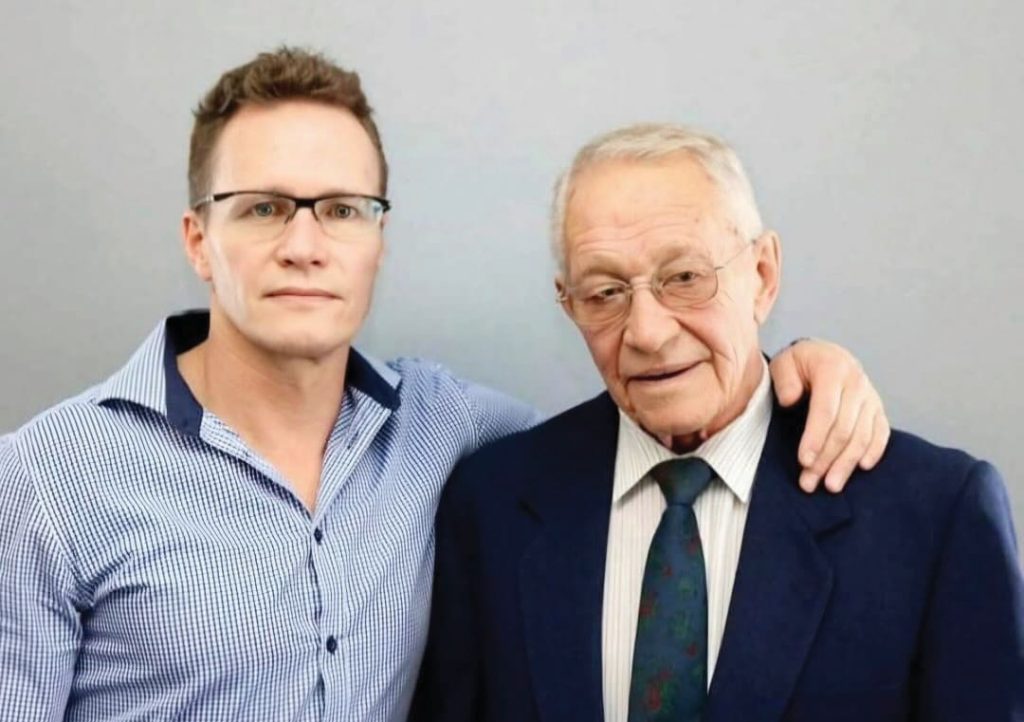
Barnard obtained his LLB law degree from the University of the Free State and trained under Flip Bredenhann.
Barnard’s sport career was later hampered by injuries. He officially retired from athletics in 1995 to concentrate fully on his law career.
He points out that although he was born with speed, he trained hard to reach the heights he achieved.
“I am absolutely happy with what I have obtained during what I can describe as a very colourful athletics career. I worked very hard to obtain whatever I won in my days as an athlete. I never rest on my laurels one single moment,” he says.
“I was an enormously tough, conscious sportsman. I really put in hours of hard work during training. I would advise the young athletes of today to emulate that model of hard work on the training ground to reap the results of your hard work on competition day.”
He says the pride he represented himself with during his years as an athlete had an unbelievable impact on the life he is living today.
“My biggest regret is that I grew up during the years of isolation. We missed out drastically on international competition. I just wonder where my talents could have taken me if I was exposed to an international level of competition,” he says.
Stay informed with The Namibian – your source for credible journalism. Get in-depth reporting and opinions for
only N$85 a month. Invest in journalism, invest in democracy –
Subscribe Now!




